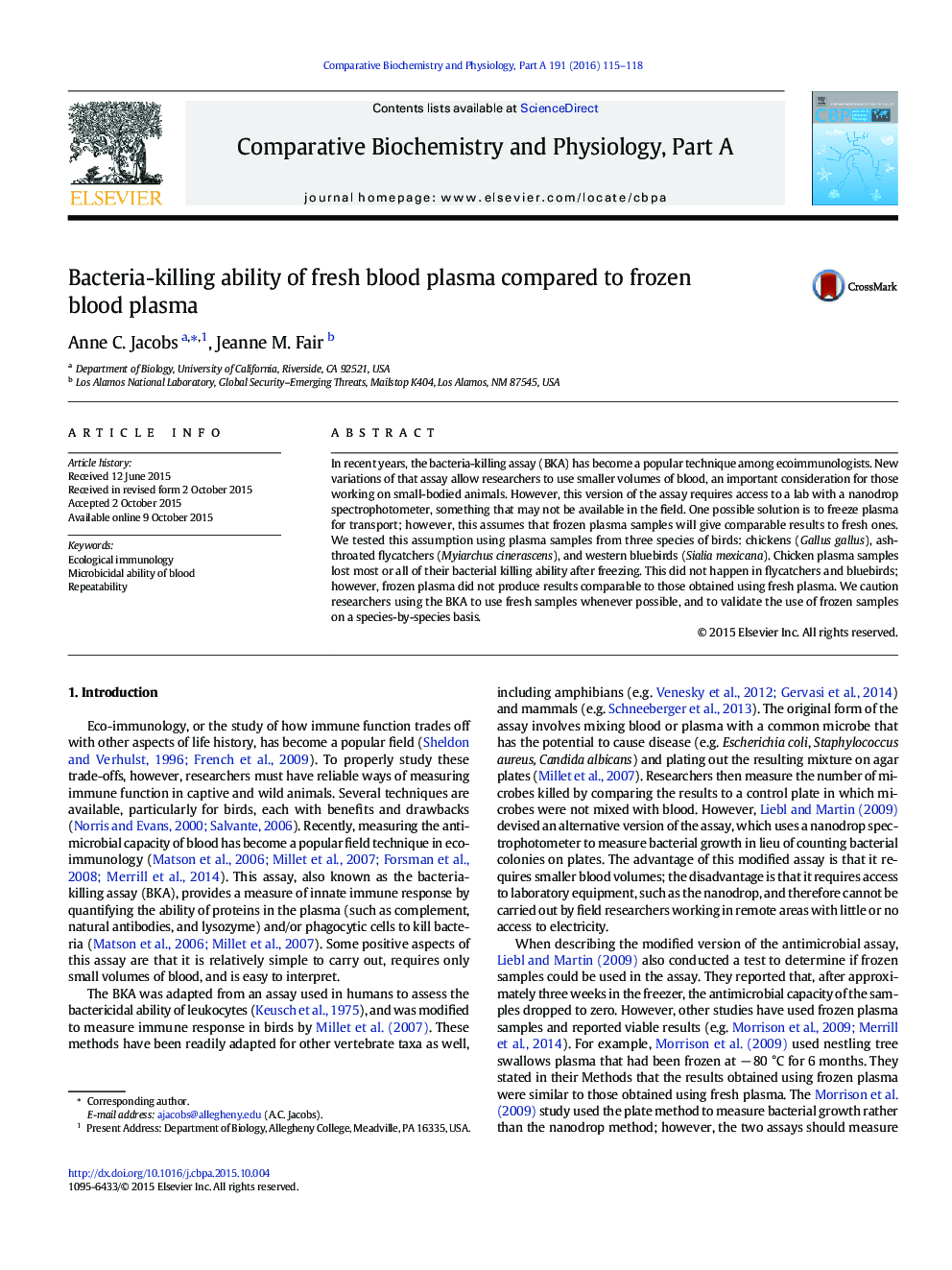| Article ID | Journal | Published Year | Pages | File Type |
|---|---|---|---|---|
| 1971992 | Comparative Biochemistry and Physiology Part A: Molecular & Integrative Physiology | 2016 | 4 Pages |
Abstract
In recent years, the bacteria-killing assay (BKA) has become a popular technique among ecoimmunologists. New variations of that assay allow researchers to use smaller volumes of blood, an important consideration for those working on small-bodied animals. However, this version of the assay requires access to a lab with a nanodrop spectrophotometer, something that may not be available in the field. One possible solution is to freeze plasma for transport; however, this assumes that frozen plasma samples will give comparable results to fresh ones. We tested this assumption using plasma samples from three species of birds: chickens (Gallus gallus), ash-throated flycatchers (Myiarchus cinerascens), and western bluebirds (Sialia mexicana). Chicken plasma samples lost most or all of their bacterial killing ability after freezing. This did not happen in flycatchers and bluebirds; however, frozen plasma did not produce results comparable to those obtained using fresh plasma. We caution researchers using the BKA to use fresh samples whenever possible, and to validate the use of frozen samples on a species-by-species basis.
Keywords
Related Topics
Life Sciences
Biochemistry, Genetics and Molecular Biology
Biochemistry
Authors
Anne C. Jacobs, Jeanne M. Fair,
